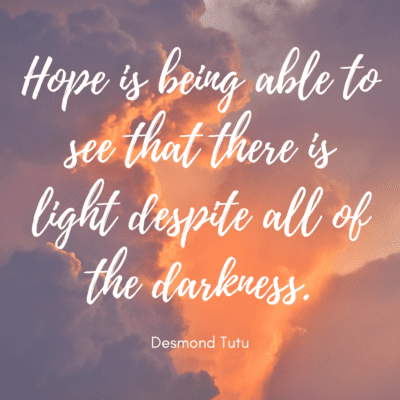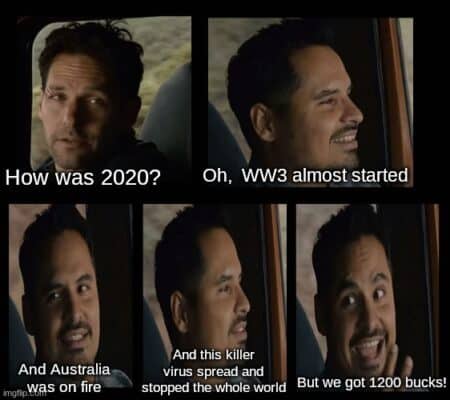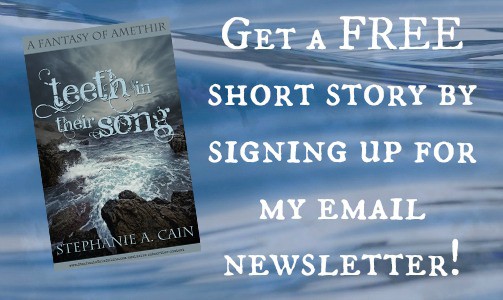I’ve written about hopeful fantasy before. Hope is something that matters to me, but I never thought I was overly endowed with positivity.
As it turns out, I was kinda wrong.
Positivity as a Strength
I recently finished Becca Syme’s Strengths for Writers course (yes, I know this blog has been full-on Becca Syme fangirl for a couple of months). It’s a dive into your top 10 CliftonStrengths focused on using those to improve your life as a writer. When I read my list, I had to laugh for a couple of reasons.
- Context
- Input
- Strategic
- Connectedness
- Activator
- Positivity
- Learner
- Intellection
- Maximizer
- Developer
- Empathy
- Communication
I was completely unsurprised by some of these items: Context, Connectedness, and Learner all inform the past 10 years I spent as an historian in a museum, as well as my general love for history. Input, Learner, and Intellection all explain why I love diving deep into any topic I encounter that might be helpful to me. Activator (along with the fact that I’m an Enneagram 8) explains why I often take a ready, fire, aim! approach to decision-making.
What I wasn’t really expecting, though, was the #6 Positivity.
Positivity and Depression
According to Gallup, who own CliftonStrengths, Positivity involves “contagious enthusiasm” and finding ways to “make everything more exciting and more vital.” In addition, the website says, “Somehow you can’t quite escape your conviction that it is good to be alive, that work can be fun, and that no matter what the setbacks, one must never lose one’s sense of humor.”
Huh. You can’t quite escape your conviction that it is good to be alive.
On the face of it, this would seem to fly in the face of the chronic depression I’ve struggled with for the past 20 (at least) years. On the other hand, it also might explain why I struggled so much with the rollercoaster that was 2020+.
People with high Positivity want to spread hope to others, but we tend to have problems with hope is so thin on the ground. I kept looking for reasons that it was good to be alive in 2020, and it wasn’t a fun search.
I do like to look for the good in things. I do, in my heart, believe that it is good to be alive. But there are times my brain chemistry decides to try to convince me otherwise.
Yay, depression.
I’ve posted about that before, so I won’t repeat myself here, but I wonder if living for 20+ years with a chronic depression diagnosis is maybe one of the things that made me believe I wasn’t an overly positive person. And yet, looking at this from the other side of the lens, I realize that my need for Positivity is probably a contributor to why I’m prone to depression.
Positivity as a Frame for Seeing the World
I’m very nerdy about the Enneagram (8×9 here), and Suzanne Stabile (godmother of the Enneagram) refers to your number as your way of seeing the world. I love that. I also think that’s a useful way to look at my high Positivity. I want to look at the world through a hopeful lens.
A brief tour of my all-time favorite books gives a good example. Lord of the Rings is filled with hope. The Chronicles of Narnia revolves around hopeful themes. Lloyd Alexander’s books almost always involve hope. 1Side Note: Someday I will write a post about the death of magic in fantasy novels, and Prydain will not be spared.
In fact, my Positivity lens helps me understand why I love the original Deed of Paksenarrion by Elizabeth Moon, but felt the sequel series fell flat. It’s been a few years since I read those, but it seems to me there was a distinct lack of hope in the sequel series.
This also explains with finality why I hate GRRM’s books. Nothing against the gazillions of you who like them, but they’ll never be my particular cup of tea.
I don’t have a problem with putting characters through pain. Life is pain, and anyone who says differently is selling something, after all. But although pain is inevitable, how I react to pain isn’t. I’m continually drawn to characters who go through hell and keep going, but I need to know they’ll be rewarded for their persistence in the end.
Which doesn’t necessarily translate to needing a Happily Ever After. After all, Frodo is rewarded for his persistence, but his reward is to go into the West. He can’t have that reward in the Shire. And as much as I hated that as a kid, I’ve found that I like that more and more with each rereading.
Hopeful Reading List

I don’t think I’m alone in having taken a lot of comfort in fictional realms over the past few years. I’ve realized as I journeyed through the SFW course that I want to be an author who provides that comfort to others. That’s one of the many reasons I decided to shift the frame a little on my Circle City Magic series in future.
In the spirit of spreading the Positivity a little, here’s a list of the books I’ve read in the past few years that have fed my appetite for positivity.
- The Kaiju Preservation Society – Jon Scalzi
- The Book of Delights – Ross Gay
- Scales & Sensibility and Claws & Contrivances – Stephanie Burgis
- Legends & Lattes – Travis Baldree
- Nettle & Bone – T. Kingfisher
- The House in the Cerulean Sea and Under the Whispering Door – T.J. Klune
- Silver in the Wood & The Drowned Country – Emily Tesh
- Greenwing & Dart series – Victoria Goddard
- Nearly anything by D.E. Stevenson, but particularly Music in the Hills and Shoulder the Sky
- Becky Chambers Wayfarers books
D.E. Stevenson wrote mostly slice-of-life/romance stories set in England during and just after WWII, which means everyone knew the Nazis were bad guys, and often the girl gets the guy. Ross Gay is a poet who also writes essays, which is what I’ve listed here. The rest are either science fiction or fantasy. But what they all have in common is that generally people get what they deserve, good or bad, and the reader is left feeling satisfied with that.
In Summary
Maybe it seems naïve to embrace Positivity, but I’ve discovered that my outlook has shifted considerably since learning this about myself. I’m not hiding my head in the sand about things like racism, climate change, polarized politics, anti LGBTQ+ sentiment. They’re real, and we need to fight them. But I don’t know how any of us can fight if we don’t have hope.
So that’s what I’m going to keep trying to create.




